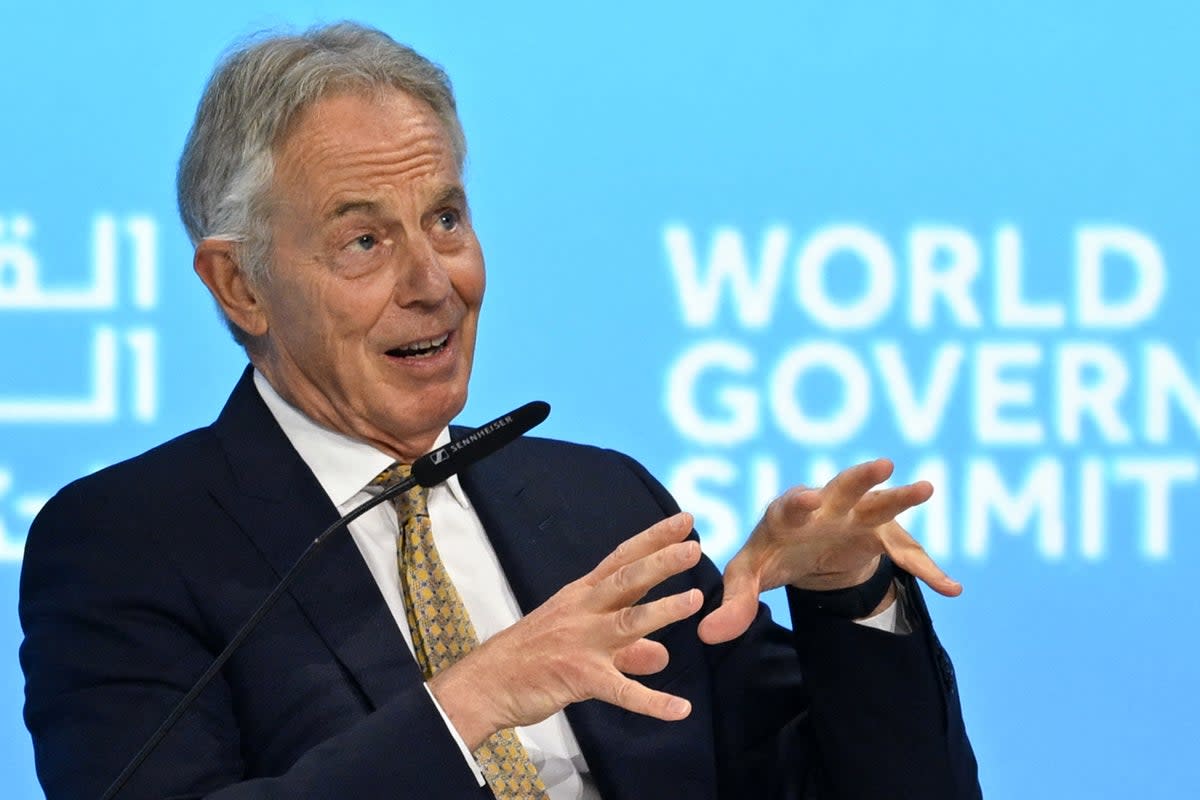Blair warns politics risks becoming populated by the ‘weird and wealthy’ as he calls for reset with Europe

Sir Tony Blair has warned politics risks becoming a branch of celebrity populated by the “weird and the wealthy” as he called for a reset of Britain’s relationship with Europe.
The former prime minister also suggested record net migration was a sign that the UK is still an attractive place to live and denounced identity politics as a “cul de sac”, in a wide-ranging interview.
More than a decade and a half after he left frontline politics, he also joked he might “sit around and drink all day” if he did not keep working.
Sir Tony and his Tony Blair Institute for Global Change, with its more than 800 staff, are widely expected to be influential if, as expected, Labour wins its first general election since he was prime minister later this year.
In a significant change of tack from his predecessor Jeremy Corbyn, Sir Keir Starmer has openly praised the legacy of the last Labour government.
But in an interview with The Sunday Times, Sir Tony expressed concern about a “loss of mission” within Western democracy.
Despite a “really exciting world”, he said when he talked to people in politics “they’re a little depressed about the future”.
He warned too many people think governments are limited in what they can achieve at the same time as a technological revolution is accelerating.
“Politicians often look at me a bit curiously and think, ‘Well, maybe he’s been too long out of the front line of politics.’ But I say to them, no — [technology] is going to change everything!”, he said.
However, as a result of the widespread pessimism surrounding how much change can be achieved in government, Blair expressed concern about the quality of candidates wanting to enter public life. “If you’re not careful there’s a real risk that politics will become a branch of celebrity,” he said. “So the people coming into politics are the weird and the wealthy.”
Meanwhile, although he argued that democracy “can deliver” he warned that the “left is struggling” as “one part of it has gone for identity politics, which is another cul-de-sac”.
He also compared it to right-wing nationalism, describing both as “victim ideologies. You never build anything from victimhood”.
On Europe, he called for a new approach to the UK’s relationship.
He said: “It would be wise to reset it... There are too many things that affect us that are going on in Europe. That doesn’t mean to say [Starmer] will start trying to frame this as rejoining [the EU] or even the single market. In any event, we’ve got a trade negotiation coming up in 2025. But at the moment we’re outside the big political union on our own continent and we’ve got a disrupted trading relationship with our biggest trading partner, so you’ve got to fix this stuff.”

He said record net legal migration, which reached 745,000 last year, suggested the UK was still an attractive place to live. “It’s a great test of a country – are people trying to get into it or out of it?” he said.
But he backed the use of ID cards to help deal with migration, rather than Mr Sunak’s flagship Rwanda policy, which has so far sent no one to the African country.
Nearly two decades after he first outlined plans for ID cards, he said: “The problem is that once [they] are here, it’s very difficult to track people… they can come in as students, they can come travelling to Britain on a tourist visa and they can stay.”
At the age of 70 he joked he would lack direction in life if he did not keep working.
The most important thing was to “wake up every morning with a sense of purpose” he said, adding that if he did not have that he did not know what he would “sit around and drink all day or something”.

 Yahoo News
Yahoo News 
